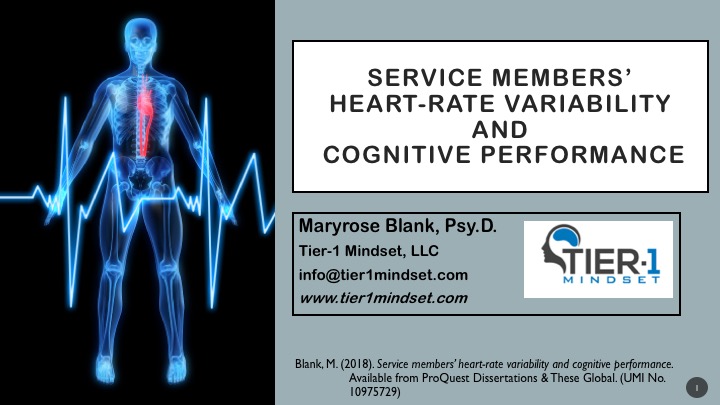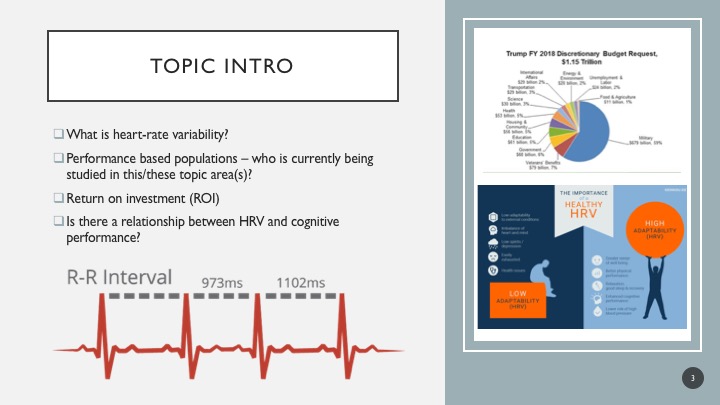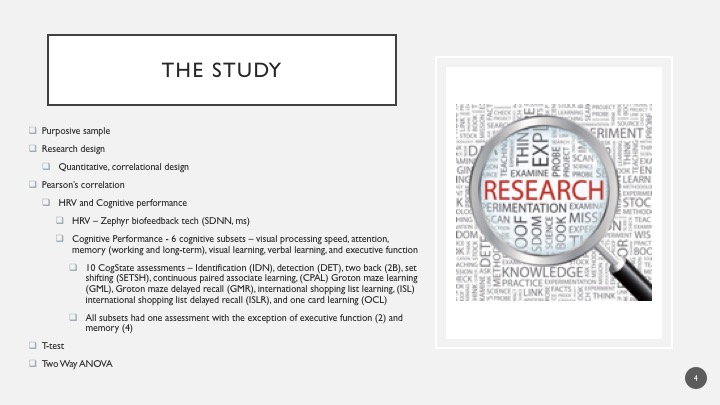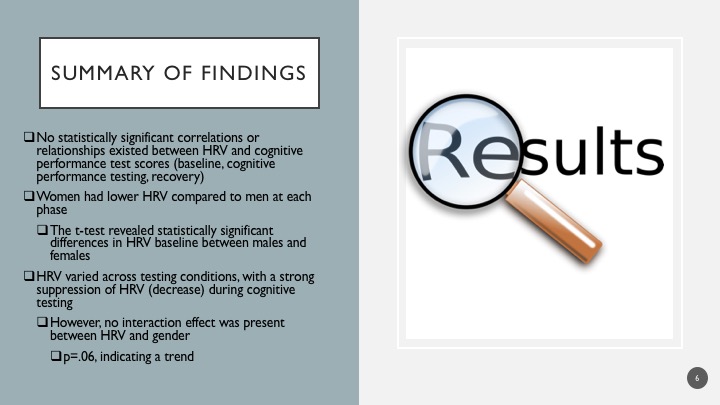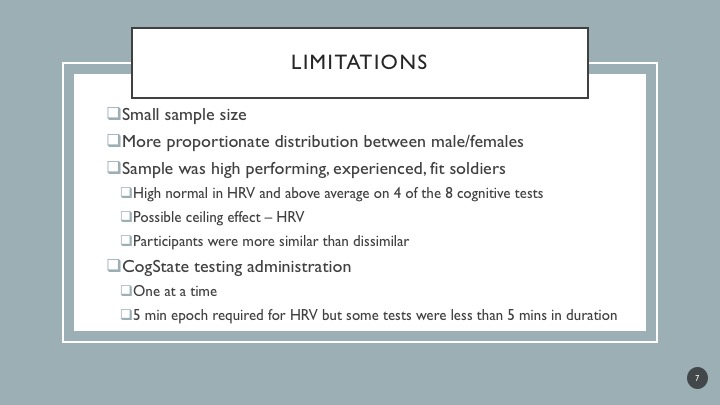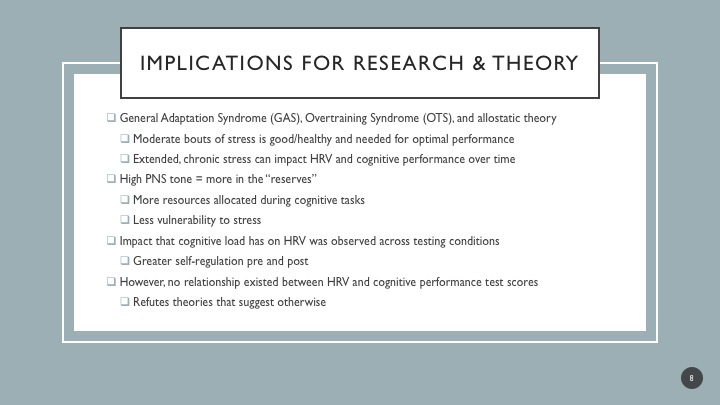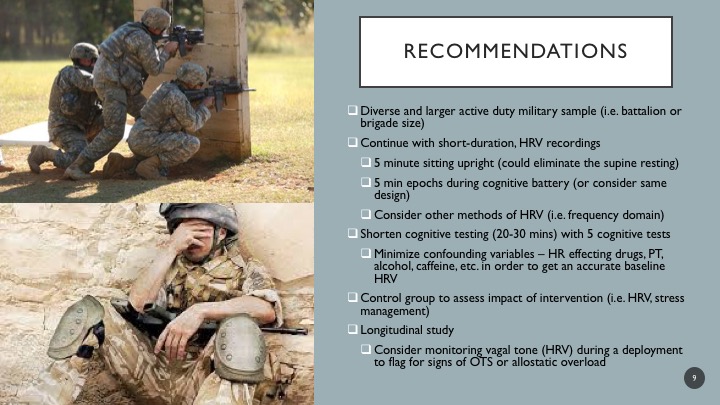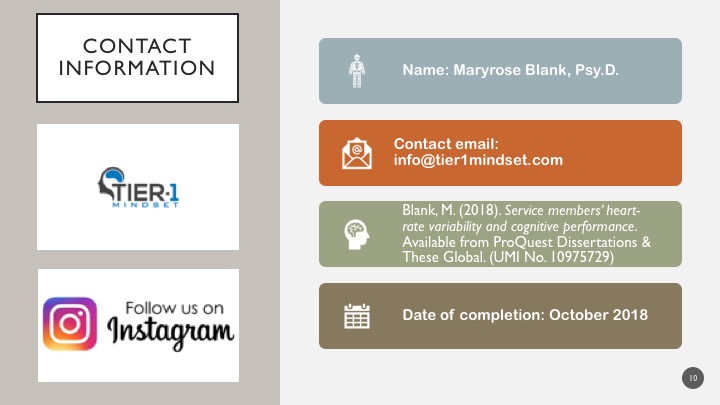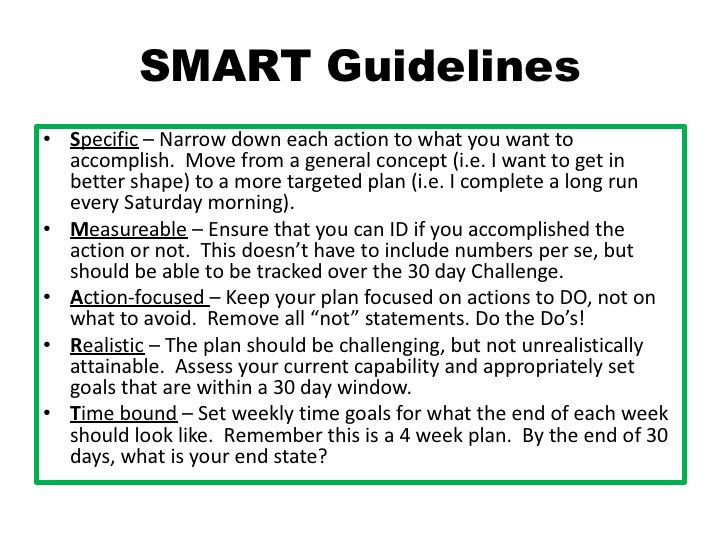- Tier-1 Mindset

- May 5, 2019
- 1 min read
Two weeks ago I had the honor of presenting on a symposium platform at Ashford University. I was able to collaborate with Dr. Peggy Sundstrom and present my research regarding Service Members' Heart-rate variability (HRV) and Cognitive Performance. Check out the attached presentation and for more details, be sure to skim through chapters 2 and 5 of the full citation.
Key takeaways:
*HRV matters - physically, mentally, emotionally, and cognitively.
*Those with higher amounts of HRV in the "reserves" are better able to cope with internal and externals stressors. In contrast, those with lower HRV are most susceptible to immune system dysfunctions and cardiac issues (if prolonged stress persists).
*These factors are relevant for all populations - not just athletes! However, HRV monitoring is very relevant when measuring overtraining syndrome, general adaptation, and allostatic overload.
*Factors such as nutrition, sleep, and fitness levels influence your autonomic nervous system (ANS) aka your HRV.
*More research is needed to study diverse samples within a military setting - specifically, as it applied to sustainable performance and overall health.
*Bottom line - HRV is an excellent measure of health and wellness. By monitoring your HRV (stress response, autonomic health), you are setting yourself up for success in whatever craft you pursue!


